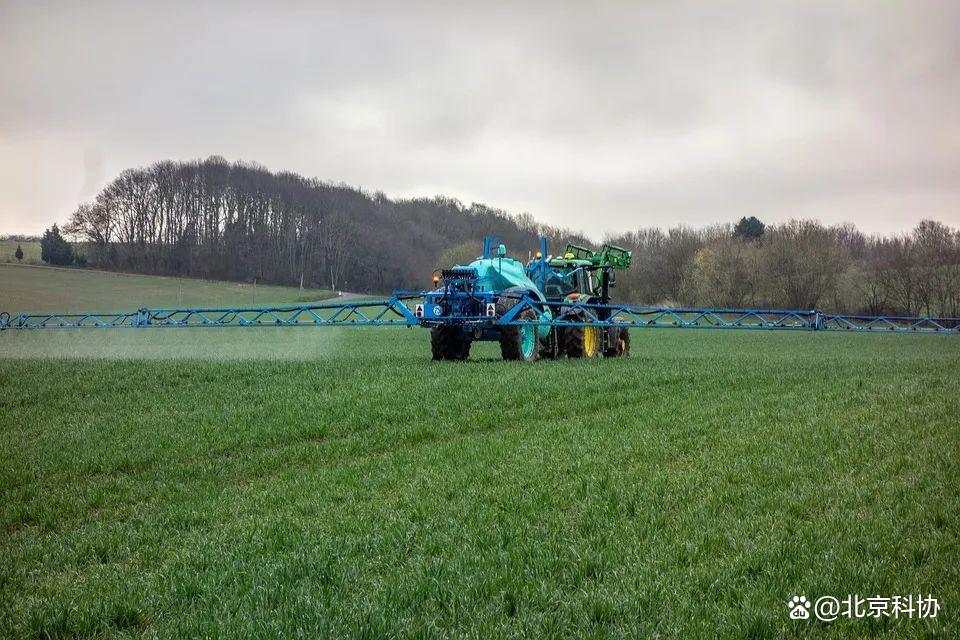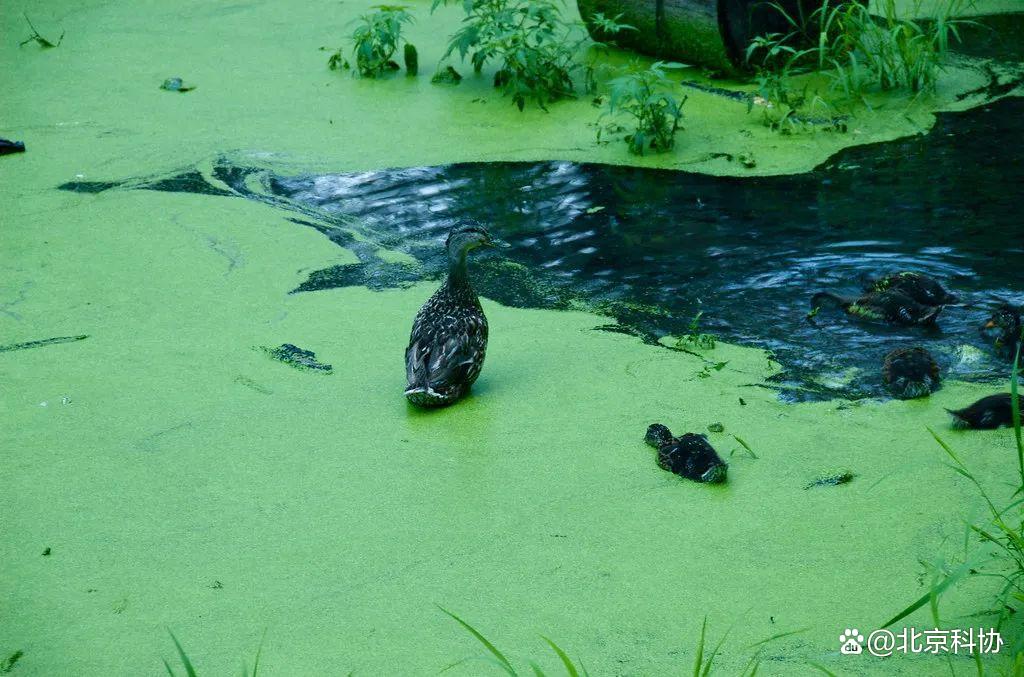Americans’s urine is as "poisonous" as chemical fertilizer
Author:Beijing Science and Technology Time:2022.08.17

Picture source: pixabay
Article Source | Scientific Research Circle (ID: Keyanquan)
Author | Sasha Warren
Translation | Akin
Edit | Wei Xiao
In the United States, the protein that people eat far exceed the real needs. Although there is no harm to health, excess protein has caused problems to the nationwide sewer. The sewage is full of residuals after the digestion of protein: nitrogen -containing compounds can nourish toxic algae and pollute air and drink water. A new study pointed out that the number of nitrogen pollution discharged from the United States is comparable to fertilizer pollution comparable to grain fields.
When we consume excessive protein, whether from lentils, supplements or steaks, the body will decompose excess amounts into nitrogen -containing urea, and finally discharge the sewer through the urine (and a small part of the feces is discharged through feces). Maya Almaraz is a biological glutinous chemist at the University of Califersity of California (DAVIS). American sewage system. Researchers combined with population data and how much excessive protein in Americans had an average of excess protein, and found that most of the nitrogen pollution (about 67% to 100%) existed in wastewater was a by -product of human digestive food. "We think that most of the nitrogen in the sewer is the case. We know that this is a problem." Elmaraz said, "But I don’t know how many of them have been affected by our choice behavior in the upstream, such as Go to the supermarket to shop, cook food, and the amount in the body. "
Once the nitrogen in urine enters the environment, it can trigger a series of ecological effects, called "nitrogen cascade". Under the conditions of specific chemical conditions and specific microorganisms, urea decomposes into a gas -oxidized nitrogen. In these gas that enters the atmosphere, nitrogen dioxide (N2O) promotes global warming through the greenhouse effect, while nitrogen oxides (NOX) cause acid rain. In other cases, algae and blue bacteria (also known as the photosynthesis of blue -green algae) are eaten directly with urea. These nitrogen help algae grow faster than usual, and the algae that produces algae will block an important water supply system, while generating toxins that endanger humans, other animals and plants. Even if the algae dies, the problem is not over. The microorganisms that eat the algae as the algae will exhaust the oxygen in the water and produce a "dead area", so that many aquatic species cannot continue to survive in rivers, lakes and oceans. Algae has spread from Puget Sound in the northwestern Pacific Pacific Ocean to Tampa in Florida, Florida in the southeast, and a large number of fish died.

Algae picture source: zappowbang, cc by 2.0.
Although we can handle algae, such as spraying clay particles or chemicals on the surface to kill them and sink them into the water, most of the existing methods do not always effectively eliminate all harmful growth, some of which even will even be Explosive pollution. Therefore, the best strategy to deal with nitrogen pollution is to prevent. Patricia Glibert, a marine scholar at the University of Maryland, said that she did not participate in the new research above.
One way to prevent nitrogen entering the environment is to transform the sewage treatment plant. Existing treatment technology can remove 90% of nitrogen in sewage, but currently only 1% of sewage factories in the United States use such technologies because of expensive prices -in China, such technology factories can remove three -quarters of the urban waterways across the country. Nitrogen, cost more than $ 20 billion. However, Elmaraz and his team suggested that changing eating habits can curb nitrogen pollution faster, and in the long run, it can save billions of dollars.
Their new research was published in the journal "Frontiers in Ecology and the Environment", and researchers decomposed the current protein demand of the current American population based on age (the most needed for middle -aged and elderly people 50 to 70 years old), the middle -aged and elderly people of 50 to 70), the people who are 50 to 70 years old), the people aged 50 to 70), are 50 to 70 -year -old middle -aged and elderly people). It is also speculated that the future population situation in 2055. Until the middle of this century, the population in the United States is expected to be more and the proportion of elderly people will be higher. Researchers calculate how many nitrogen flowing into the environment if people consume food in accordance with the average consumption of the current Americans; and if people reduce protein intake according to the needs of real nutrition, how much will there be nitrogen entering the environment. The research results show that just changing the dietary habits can reduce the nitrogen currently entering the aquatic ecosystem by 12%, and the future will be reduced by nearly 30%. Such changes also help reduce destructive nitrogen pollution, and at the same time, wastewater treatment infrastructure can also catch up.
"Many people think that we need to become a vegetarian. Obviously, this is unrealistic, and this will not happen in the future." Glebert said. She suggested that consumers do not have to eat any (high protein) foods at all, but can turn to the "half -vegetarian food" method, a diet method focusing on reducing meat and dairy products. Today, two -thirds of protein intake from the United States come from meat and dairy products. "Enjoy your steak, enjoy your burger, but eat less meat in the next meal," she said. "Now, we have opened a new situation: how can human behavior affect our environment." Elmaraz said, "I think it can make people understand this: 'My choice, once adding others to make the same thing The choice can really have a positive impact. '"
Original link:
https://www.scientificAmerican.com/article/eating-much-protein-Makes- A-POLLLUTATANT-In- U- S/
Thesis information
[Title] The Impact of Excessive Protein Consumption on Human Wastewater Nitrogen Loading of US Waters
[Author] Maya Almaraz, Caitlin D Kuempel, Andrew M Salter, Benjamin S Halpern
[Journal] Frontiers in ECOLOGY and the Environment
【Date】 21 june 2022
【Doi】 https://doi.org/10.1002/fee.2531
【摘要】Total and per capita protein consumption rates in US diets, whether from plant or animal sources, rank among the highest in the world. When protein consumption outpaces physiologic protein demands, excess amino acids are degraded in the human body and nitrogen (N ) is excreted and released to the environment, mainly in the form of urea. Such excess reactive N can enter downstream environments, thereby impairing human and ecosystem health as well as contributing to economic losses. We show that matching protein consumption with physiologic requirements would reduce US hydrologic N losses to aquatic ecosystems by 12% and overall (atmospheric and hydrologic) N losses to ecosystems by 4%. Were US citizens to consume protein at recommended rates, projected N excretion rates in 2055 would be 27% less than they are today , Despite Population Growth. Optimizing us Protein Consumption to Levels that Meet Human Health Standards Has Environmental Benefits on Par with Improve Wasteer TREATM ENT USING Existing Technology, While Also Generation Impactful Economic Benefits.
Source: Global Science
- END -
2022 Zhanjiang Youth Robot Competition starts

Programming aircraft break through the barrier, deep sea exploration sea bud robot...
Doctor Yang Haiming in Xinjiang: No matter how small possibilities are, it is worth going to go all out
Xinjiang Net News (Reporter Wu Zhijie Correspondent Deng Yao Qiong Pengling) Yaoyao's breathing is finally normal. Watching the child's condition improved, the mother Li Mei (pseudonym) hanged, and fi...